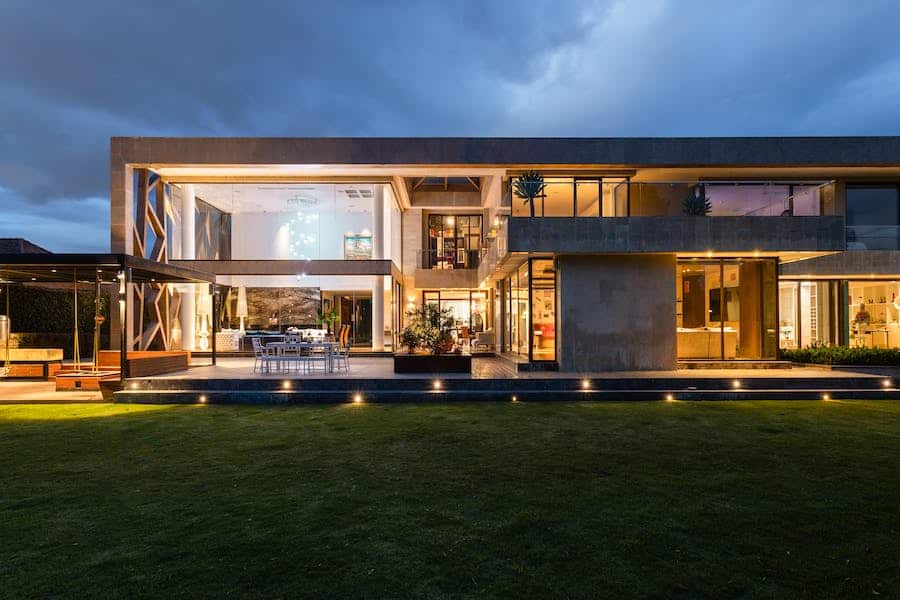Edmonton, a thriving city in Alberta, Canada, offers many opportunities for commercial real estate development. Investing in Edmonton’s commercial land can be a great opportunity if you know how to plan and execute your development project effectively.
In this comprehensive guide, we’ll walk you through the crucial steps involved in ensuring the success of your commercial development project in Edmonton, covering factors such as permits, contractors, and project management.
Executing a Successful Development Project
Research and Feasibility Study
Before exploring available commercial land for sale in Edmonton and embarking on a development project, it is essential to conduct a comprehensive research and feasibility study.
Market Research:
- Analyze market demand and trends specific to your project’s location and type.
- Assess the economic climate and potential growth opportunities in Edmonton’s commercial real estate sector.
Regulatory Assessment:
- Understand local zoning regulations, land use policies, and building codes applicable to your project.
- Identify any environmental permits or clearances required for your development.
Financial Evaluation:
- Calculate the potential return on investment (ROI) by considering all project-related expenses and projected income.
- Create a realistic budget that includes land acquisition costs, construction expenses, permits, and contingency funds.
Location Analysis:
- Carefully choose the project location, taking into account factors such as accessibility, proximity to amenities, and market demographics.
- Evaluate the competition in the area and determine your project’s unique selling points.
Secure Financing
Once you’ve determined the feasibility of your project, it’s time to secure the necessary financing. This can come from various sources, including banks, private lenders, investors, or your own capital.
Work with a financial expert to create a realistic budget and secure the funds needed for land acquisition, construction, permits, and other project-related expenses.
Land Acquisition
Choosing the right piece of commercial land is a vital step in your development project. Factors to consider include location, zoning regulations, size, accessibility, and proximity to amenities and utilities.
Work with a real estate professional who specializes in commercial properties to find the ideal parcel of land that aligns with your project’s goals and budget and make an offer.
Obtain Necessary Permits
Edmonton, like any other city, has a set of regulations and permitting requirements for commercial development. It is imperative to navigate these regulations to avoid costly delays or legal issues.
Identify the necessary permits and approvals needed for your project, which may include zoning permits, building permits, environmental permits, and more.
Assemble a Skilled Team
A successful development project requires a team of skilled professionals, including architects, engineers, contractors, and project managers. Select reputable and experienced individuals or firms that have a track record of successfully completing similar projects.
Architectural Expertise:
- Select experienced architects who can design a commercial space that aligns with your project’s objectives and local regulations.
- Ensure the architectural team is capable of creating efficient and aesthetically pleasing designs.
Engineering and Construction:
- Hire reputable engineers who can provide structural, electrical, and mechanical expertise for the project.
- Choose a reliable construction contractor with a proven track record in commercial development.
- Consider subcontractors for specialized tasks like plumbing, electrical work, and HVAC systems.
Project Management:
- Appoint a project manager with strong organizational and leadership skills to oversee the entire development process.
- Establish clear lines of communication within the team and set up regular progress meetings to track milestones.
Alignment with Project Goals:
- Ensure all team members are aligned with the project’s goals, timeline, and budget.
- Encourage collaborative problem-solving and proactive decision-making among team members.
Legal and Compliance:
- Consult with legal experts to navigate complex regulatory requirements and obtain the necessary permits and approvals.
- Stay up-to-date with any changes in local laws or regulations that may affect the project.
Develop a Detailed Project Plan
Create a detailed project plan that outlines every aspect of your development project. This plan should include a timeline, budget, scope of work, and quality standards. Establish clear goals and milestones to track progress throughout the project’s lifecycle.
A well-structured project plan will serve as a roadmap and help you stay organized and focused on your objectives.
Construction and Project Management
The construction phase is where your vision starts to take shape. Your project manager will play a vital role in overseeing the construction process, ensuring that it adheres to the project plan, budget, and timeline.
Regular site inspections, progress reports, and effective communication with your construction team are essential to mitigate any potential issues and keep the project on track.
Quality Control and Inspections
Maintain a rigorous quality control process throughout the construction phase. Regular inspections and quality assurance checks help identify and address any construction defects or issues promptly.
Addressing these concerns early can save you time and money in the long run and ensure that your development meets the necessary standards and regulations.
Marketing and Leasing
As the construction nears completion, shift your focus to marketing and leasing your commercial space. Develop a marketing strategy that targets potential tenants or buyers, highlighting the unique features and benefits of your development.
Final Inspections and Occupancy
Before your development project can be occupied or leased, it must undergo final inspections and obtain all necessary certificates of occupancy. This step ensures that the building complies with safety codes and regulations.
Once all inspections are successfully completed, you can officially open your commercial space for business or lease it to tenants.
Ongoing Management and Maintenance
Even after your development project is complete, ongoing management and maintenance are crucial for long-term success.
Implement a proactive maintenance plan to address any repairs or upgrades as needed. Consider hiring a property management company to handle day-to-day operations, tenant relations, and maintenance tasks, allowing you to focus on maximizing your ROI.
Conclusion
Planning and executing a profitable development project on Edmonton’s commercial land involves meticulous research, careful planning, and effective execution. By following these steps, from conducting a feasibility study to ongoing management and maintenance, you can increase your chances of success in the competitive commercial real estate market.
Keep in mind that staying informed about local regulations, engaging with the right professionals, and maintaining a focus on quality will be key to achieving your goals and realizing a profitable return on your investment in Edmonton’s thriving commercial real estate market.








